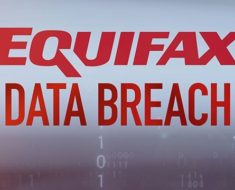Executive background checks are investigations performed on business managers, CEOs, hedge fund investors, board members and other people wanting to join a company. In many ways, executive background checks resemble that of the kind performed on entry-level employees.
They usually include several components such as the following:
Criminal check — A thorough investigation of an employment candidate or business partner may include finding out if that individual ever committed fraud, embezzled money, or harassed workers. Not all strikes on a person’s record would bar that person from a position as manager, board leader or partner. Any criminal activity that would make a candidate a risky employment choice could inhibit them, however. Positions of leadership where someone is in the spotlight most of the time are ones that usually require the most scrutiny.
Social media screening — In addition to finding out about a person’s criminal history, companies often find it necessary to check out social media profiles. The comments, posts, videos, pictures and conversations a person has on social media says quite a bit about hire applicants. For instance, they maybe talk about their former bosses or decide to publicly vent about company policies that should be kept private. Even positive announcements about a workplace (e.g., an upcoming product release) not meant for the public to see yet also can be thought of as a breach of confidentiality that a new employer might perceive as a red flag.
Reputation research– This might involve the use of search engines to retrieve any negative publicity about a candidate. For instance, online searches might turn up news articles revealing incidences involving an employee or forum discussions where people maybe talk about what they don’t like about a person’s character. Reputation scores and reviews where a person is mentioned may also reveal information that human resource managers need before making a hiring decision.
Identity verification – This includes a variety of steps to verify a person really has the name they claim to have and finding out if they told the truth on their resume. Verification usually is completed as a person applying for an executive position provides documentation such as a photo I.D., birth certificate or Social Security card. Reference checks also usually can help verify a person’s identity.
Why an Executive Background Check is Important
Finding out as many details as possible about a potential executive for hire or prospective business partner can help a company decide whether or not this person would be an asset or a liability. It also can determine if any negative aspects of a person’s past would affect the closing of major investment deals.
In the event an executive background check deems a potential hire as an asset, it can help an employer determine positioning of that new addition relative to other team members. These employee screenings also save a company money, especially if they help prevent hiring anyone who would commit assault crimes on the job. Hiring the right people also preserves corporate reputations.
How an Executive Background Check Works
This often involves presenting human resource managers with biographies of a person. Information might also include any rumors or concerns that came up during a reputation search. Executive background check data might come from public databases. However, it might also require paid access to premium databases not readily available to just anyone.






